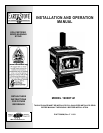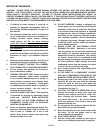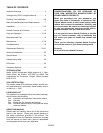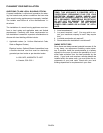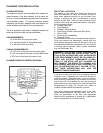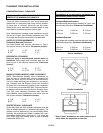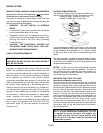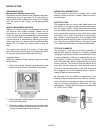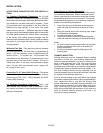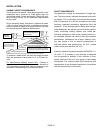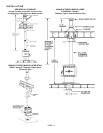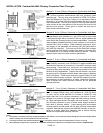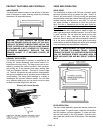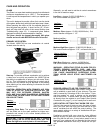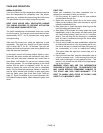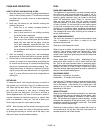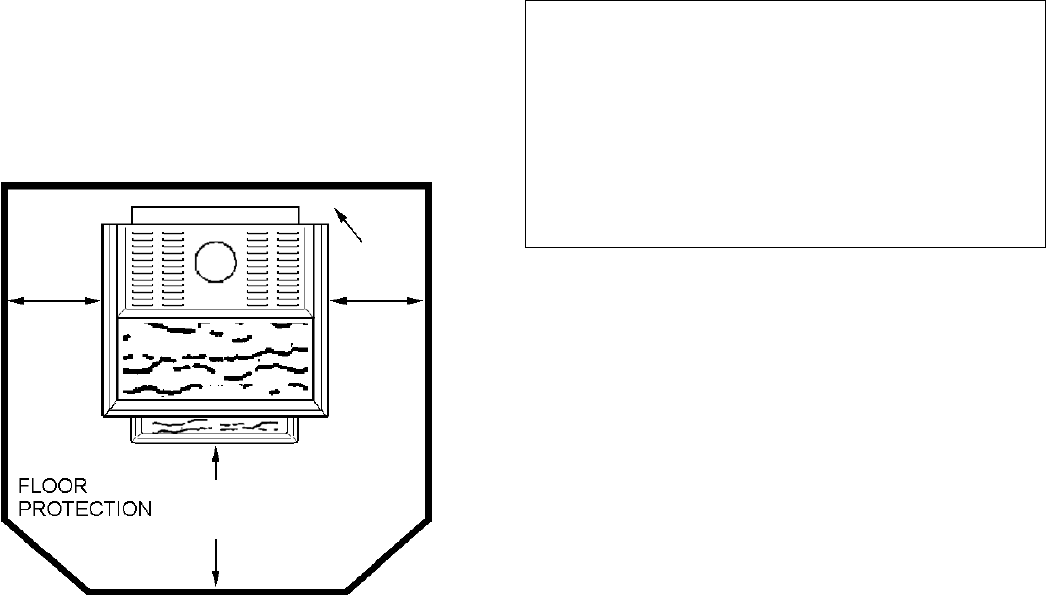
PLANNING YOUR INSTALLATION
PAGE 5
FLOOR PROTECTION
This appliance requires non-combustible floor protector for
ember protection. If the floor protection is to be stone, tile,
brick, etc., it must be mortared or grouted to form a continuous
non-combustible surface. If a chimney connector extends
horizontally over the floor, protection must cover the floor un-
der the connector and at least 2" (51 mm) to either side.
The floor protection must extend completely beneath the
stove and to the front, sides, and rear as indicated:
USA REQUIREMENTS:
16" to the front of the fuel door glass
4½" beyond the sides of the pedestal base
0" to the back of the stove body
CANADA REQUIREMENTS:
18" (457 mm) to the front of the fuel door glass
8" (203 mm) beyond the sides of the pedestal base
8" (203 mm) to the back of the stove body
STANDARD PARALLEL HEARTH PAD SHOWN
SELECTING A LOCATION
The design of your home and where you place your
stove will determine its value as a source of heat. A
wood stove depends primarily on air circulation (con-
vection) to disperse its heat, and therefore, a central
location is often best. There are other practical consid-
erations, which must be considered before a final selec-
tion of locations is made.
♦ Existing Chimneys
♦ Wood Storage
♦ Aesthetic Considerations
♦ Roof Design (Rafter Locations & Roof Pitch)
♦ Room Traffic
♦ Proximity to Combustibles
♦ Electrical Wiring
The installation of this stove will require some research.
Once your options are determined, consult with your
local building department who will be able to give you
the necessary installation requirements for your area (Is
a building permit required, Rooms where installation
may not be allowed, etc.).
WARNING: CHECK ALL LOCAL BUILDING AND
SAFETY CODES BEFORE INSTALLATION. THE IN-
STALLATION INSTRUCTIONS AND APPROPRIATE
CODE REQUIREMENTS MUST BE FOLLOWED EX-
ACTLY AND WITHOUT COMPROMISE. ALTERA-
TIONS TO THE STOVE ARE NOT ALLOWED. DO
NOT CONNECT THE STOVE TO A CHIMNEY SYS-
TEM SERVING ANOTHER STOVE, APPLIANCE, OR
ANY AIR DISTRIBUTION DUCT. FAILURE TO FOL-
LOW THESE INSTRUCTIONS WILL VOID THE
MANUFACTURERS WARRANTY.
If you plan to vent your stove into an existing masonry
chimney, have it inspected by a local fire marshal or
qualified installer. Remember that a stove's perform-
ance is heavily influenced by the chimney and its loca-
tion on the roof. An oversized flue may not provide ef-
fective draw, and a flue liner may be required (see Draft
Requirements on page 10). Consult your dealer or
qualified installer before final selection is made.
This stove requires pre-installation work to be com-
pleted before installation can take place. This will in-
clude the preparation of the floor and appropriate
hearth pad for acceptance of outside air (if applicable),
and for modification for flue and chimney.
4½"–USA
8" (203
mm)–
CA
N
ADA
4½"–USA
8" (203 mm)–
CANAD
A
0"–USA
8" (203 mm)–
CANADA
16"–USA
18" (457 mm)–CANADA



